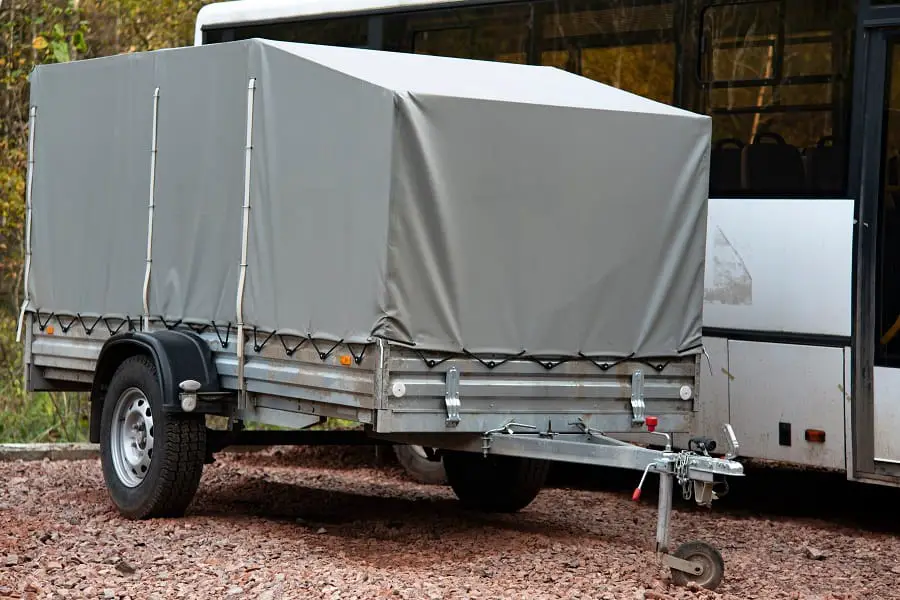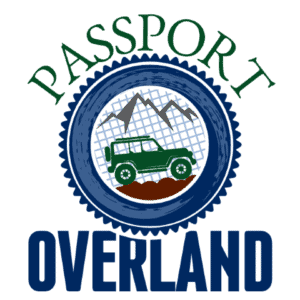
Overlanding with an offroad trailer makes a convenient and comfortable camping experience, but it also makes a very challenging offroad driving. Well, if you are in desperate need of storage and space to survive your week-long overland trip, you really have to hitch an off-road trailer to your overland vehicle.
It may be difficult to tow a trailer, especially in uneven terrain, but it will all be worth it once you reach the camping part of your adventure trip.
Tips and Tricks for Towing a Trailer When Overlanding
Those who come prepared are the ones most likely to survive any kind of Overlanding experience. If you are in need of preparation for your offroad towing and some knowledge on Overlanding trailers for different terrains, this article can help.
Here are the tips and tricks you have to know for a safe and fun Overland trip with a trailer behind your 4×4.
1. Steep Hills
Steep hills are the most challenging obstacles you will encounter on your off-road driving. Yes, it’s fun because it feels like a roller coaster ride. But without knowledge of how to drive on one, you can put yourself at risk of accidents and your vehicle at risk of damage. Before you challenge the steep hill ahead with your 4×4 and offroad trailer, challenge it first by foot.
Get out of your car and experience how steep it is and see what lies on the other side of the hill. If you think your trailer can conquer the hill, it’s time to prepare your vehicle for the obstacle ahead. Check your tires and air them down if needed. Reducing the pressure on your tires can give you more traction, so you make sure that your tires stay on the ground.
Driving Tips on Steep Hills
Shift into a lower gear before you start climbing the hill with your vehicle to improve gas mileage and avoid engine overheating. As you ascend, stick to your chosen line and maintain traction at all times. The trick in this one is to drive on pre-worn ruts if there are any. These ruts can guide your vehicle where to go, especially in times of stalling and you have to back down.
When you’ve reached the peak of the hill, avoid prolonged use of the brakes when you drive downhill because it can cause overheating. Step on the brake pedal gradually and as gently as possible. Control is important when you descend the hill because the extra weight from your trailer will exert more downward force on your vehicle.
Recovery Tips on Steep Hills
Maintaining traction while you ascend the steep hill is difficult because the extra weight of your trailer will pull your vehicle downwards. Always remind yourself not to panic when you lose traction. Slowly change your line of driving to get your tires back on the ground again. If you find yourself stalling halfway up the hill, put your vehicle into reverse and then back down the hill, using the ruts on the road surface as a guide.
If you can’t reverse and get stuck, secure your vehicle with the use of a Winch Extension Strap or simply by putting a log or a rock at the back of your tires to keep the vehicle from rolling backward.
2. Muddy Terrain
Mud is another common trail in Overlanding and nothing beats the fun when driving on one, with all the gooey mud splashing everywhere. But it is very dangerous as well because you can get buried in mud and be unable to get out of it. Before you drive your vehicle and your offroad trailer through the mud, assess the condition of the muddy trail first. See how deep the soft mud is and if there are rocks that can damage your tires.
Ruts can help you tackle the mud because the soft mud is now gone and what’s only left is a solid base that can now support your vehicle. But you have to see how deep the rut is because if it’s too deep, it would require a much higher ground clearance for your vehicle.
Make sure that your tires are specially designed to tackle mud, like the General Tire’s Grabber X3. Its sidewall protection lugs are able to provide more grip in mud, and its self-cleaning evacuation channels can get rid of mud that is stuck on the tires easily.
Driving Tips
The recommended tire pressure when driving in mud is between 15-20 PSI. This tire pressure can give you longer footprints so you don’t get buried in the soft mud. Keep in mind that when you reduce the tire pressure in your vehicle, you have to do the same with the tires on your trailer. Drive straightforwardly and slowly for the sake of the trailer behind your vehicle. Momentum and low pressure are two important things you have to keep in mind while tackling the mud.
Recovery Tips
It is easy to get stuck in the mud with just one wrong move. In times like this, you have to be well prepared with recovery gear. If you find yourself buried in mud, chances are mud has built up in front of your tires. The only way to move forward is to remove this barrier with the use of an Offroad Recovery Shovel. Once you’re done with this, use Offroad Recovery Tracks to improve traction and get out of the muddy trail faster.
3. Sand
Driving on sand is the same as driving on mud, mainly because there is a greater chance of you getting stuck and stranded. Tackling sand with just your 4×4 is difficult enough, but what more if there is another vehicle behind you that you have to pull?
Before you hit the soft sand in the desert or on the beach, make sure that the tires and tire pressures in your 4×4 match those of your offroad trailers so your vehicles move and act as one. Air down to 18 PSI if you have to drive on soft sand, and be prepared for any kind of car trouble you’ll encounter while driving on sand.
Driving Tips
A rule of thumb in sand driving is to drive slowly and be vigilant about the trailer behind you and the road ahead of you. The recommended speed for hard sand driving is 70-80 km/h. Keep your eyes on the road and be alert to possible obstacles in need of slowing down.
It is difficult to drive on sand because there are no straight paths or ruts for you to follow. You just have to avoid sharp turns and sudden acceleration because these can lead to you getting buried and stranded in the sand. Worse, they can cause unwanted accidents.
Recovery Tips
The recovery tricks to get you out of the sand are the same as how you do it to escape the mud. But the first step is to immediately stop the vehicle and avoid accelerating because it can get you buried deeper in the sand. The reason why you’re stuck is because of the sand that has built up in front of your vehicle.
Use a shovel to get rid of the sand and then use recovery tracks to improve traction and get your vehicle out easily. If you need to push the vehicle, you can call some people around you for help. Patience is a virtue, especially now that you have 6 wheels to deal with.
4. Rock
The problem with unpaved roads is that they are uneven. If you have a vehicle that has lower ground clearance, this road surface can damage the undercarriage of both your vehicle and your offroad trailer. Gravel roads are a combination of sand and small rocks with sharp edges that can cut your tires and get you stranded in a remote place with a flat tire.
These rocks can also cause bumpy and uncomfortable rides. You have to prepare your trailer and your vehicle for all of these.
Driving Tips
A good overland trailer has a ground clearance of 8-10 inches, multiple recovery points, a Lock N’Roll Hitch, and an axle-less suspension. The combination of all these can give you a trailer that can conquer rough rocky terrain. All you have to do is to drive as slowly as possible and as fast as necessary. Lower your tire pressure when you need to improve your traction, and always watch out for obstacles in the road ahead of you.
Recovery Tips
Pebbles and other sharp materials on the road can flatten tires not only on your vehicle but also on the trailer hooked up to it. Flat tires can get you stuck in remote places where it’s dangerous to stay.
For fast recovery, make sure that you are equipped with a Mechanics Tool Kit and a Tire Repair Kit to repair simple vehicle and trailer problems on the road. Always bring with you a spare tire just in case you need to replace a tire on your 4×4.
Final Word
Always keep in mind that different terrains require different tire pressures for offroad driving check out our article here. Air down before hitting the rough road. Drive slowly so you can easily stop your vehicle when faced with sudden road obstacles. In times when you suddenly find yourself stuck on difficult terrain, a truck recovery kit can save your life.
Towing an overland trailer in different terrains is very challenging, but with the best overland trailer and equipment, you’ll get to experience more of its pros than its cons. Keep in mind all the tips and tricks mentioned above when you drive an offroad trailer on different terrains for a safe Overlanding trip.

